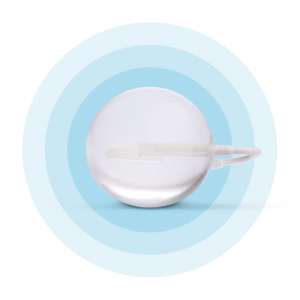Gastric Balloon and Constipation
Spatz3 is the world’s only Adjustable Gastric Balloon System
Might you suddenly experience constipation with a gastric balloon procedure? As this appliance will directly impact the functionality of your digestive system, it only stands to reason that there may be some time of causal relationship. However, there can be other reasons why symptoms of constipation present themselves on occasion. This article will therefore address several relevant themes.

Receive your free 4 -step guide today!
In each step, you’ll learn new tips to help you choose the RIGHT weight loss solution!
What common gastric balloon side effects are felt by some patients? Can those who have recently undergone bariatric procedures safely take laxatives? In the most severe cases, what are the warning signs that a gastric balloon has burst? In terms of practical knowledge, it pays to take a closer look at each area of concern in greater detail.
The Side Effects of Bariatric Procedure at a Glance
Much like any other type of invasive treatment, some individuals may experience specific side effects following bariatric procedure. Here are a handful of common sensations:
- Localized pain or tenderness in the abdomen.
- Cramps and/or bloating.
- Nausea.
- Difficulty eating certain foods.
- Acid reflux.
- Changes in appetite.
We should also note that constipation with gastric balloons is likewise quite normal after bariatric procedure. This arises from the fact that individuals tend to consume less solids and liquids. As a result, it can be more difficult to pass food through the small and large intestine. Those who are temporarily unable to exercise may also experience changes in their bathroom habits. The good news is that these symptoms will generally resolve themselves without any need for medical intervention.
What Can a Bariatric Patient Take for Constipation?
Let us take the main theme of this article a step further. What are your options in the event that you have not experienced a bowel movement for some time? Most professionals agree that those who are unable to go to the bathroom for more than three days should address the issue at hand. However, prescription medications are usually not recommended due to the fact that they may irritate the lining of the stomach and small intestine.
First and foremost, ensure that you remain hydrated and you drink plenty of water. This can help to soften the stool and in many cases, to cause a bowel movement. All-natural substances such as milk of magnesia or coconut water will likewise produce mild laxative effects.
Are Laxatives Safe to Consider?
However, there may still be times when the recommendations outlined in the previous section fail to produce viable results. In such a situation, the administration of laxatives is generally not recommended. One reason behind this train of thought is that laxatives may impede the functionality of the recent treatment (particularly more invasive surgeries such as a gastric bypass).
Secondly, bariatric procedures might not be the root cause of your constipation. Relying upon laxatives for relief will deprive your body of the vital nutrients that it requires to function properly. In the event that you have been unable to go to the bathroom for more than five days, it is better to speak with your primary care physician or the doctor who initially performed the bariatric procedure.

Warning Signs that There May be a Physical Problem with Your Gastric Balloon
It is crucial to mention a third (albeit uncommon) situation. On rare occasions, a gastric balloon may deflate. This can lead to constipation if it blocks a portion of the stomach known as the pylorus. Medical professionals consider this to represent a serious scenario and in some cases, the balloon might even begin to pass through the small intestine. This may lead to a blockage that can cause severe consequences. If you feel a sudden change in the density of your stomach, seek medical advice.
Time and Patience
We can now see that constipation after gastric bypass procedure is not entirely uncommon. Thankfully, the chances are high that your digestive tract will soon return to normal. It is also important to mention that the adjustable nature of the Spatz3 gastric balloon can help to alleviate many of the symptoms associated with more traditional approaches.
It is still important to carefully monitor any symptoms that you may be experiencing, particularly immediately following any type of bariatric procedure. Constipation with gastric balloons is normally a minor inconvenience and in the majority of cases, there is no need to raise any alarms.
Contact a Spatz3 representative
near you

